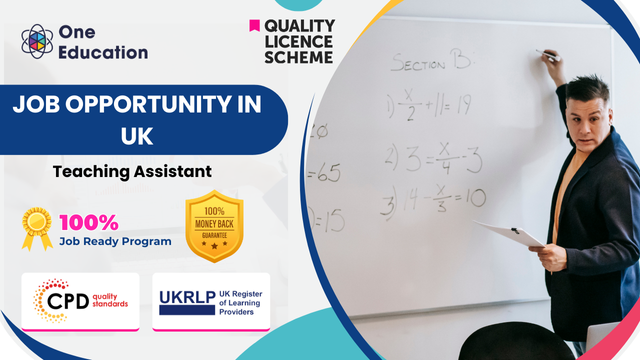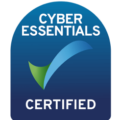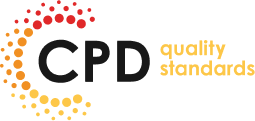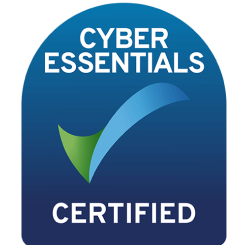Course Curriculum
| Induction Form | |||
| Induction Form | 00:05:00 | ||
| Registration Entry Form | |||
| Registration Entry Form | 00:05:00 | ||
| SafeRead Passcode: Unlock Your Study Materials | |||
| SafeRead Passcode: Unlock Your Study Materials | 00:00:00 | ||
| Introduction to the Course | |||
| An Introduction to the Diploma in Education and Training | 00:00:00 | ||
| Glossary of Educational Terms | 00:00:00 | ||
| Verbs used in the Diploma in Education and Training Units | 00:00:00 | ||
| Educational Abbreviations and Acronyms | 00:00:00 | ||
| Hints and Tips for Creating and Using Handouts and Visual Presentations | 00:00:00 | ||
| Online Safety | 00:00:00 | ||
| Tips for New Teachers and Trainers | 00:00:00 | ||
| Attitudes Affecting Behaviour | 00:00:00 | ||
| Beginners Guide to Referencing | 00:00:00 | ||
| Study Materials | |||
| Topic 01 | |||
| Teaching Roles Responsibilites and Legislation | 00:00:00 | ||
| Table of Examples of Teaching Roles and Responsibilities | 00:00:00 | ||
| Boundaries of Teaching | 00:00:00 | ||
| Topic 02 | |||
| Initial and Diagnostic Assessment, Learner needs and Points of Referral | 00:00:00 | ||
| Demonstrating Good Practice to Promote Inclusion | 00:00:00 | ||
| Table of Examples of Potential Needs and Points of Referra | 00:00:00 | ||
| Template – Initial and Diagnostic Assessmen | 00:00:00 | ||
| Topic 03 | |||
| Designing Schemes of Work, Group Profiles and Session Plans | 00:00:00 | ||
| Example Completed Scheme of Work | 00:00:00 | ||
| Completed Example Scheme of Work Rationale | 00:00:00 | ||
| Example Completed Session Plan | 00:00:00 | ||
| Template – Scheme of Work Rationale | 00:00:00 | ||
| Template – Scheme of Work | 00:00:00 | ||
| Topic 04 | |||
| Using Resources and Technology | 00:00:00 | ||
| Table of Resources | 00:00:00 | ||
| List of Technologies | 00:00:00 | ||
| Advantages and Disadvantages of Using Technology | 00:00:00 | ||
| Resource Box | 00:00:00 | ||
| Assistive Resources | 00:00:00 | ||
| Topic 05 | |||
| Theories, Principles and Models of Learning | 00:00:00 | ||
| Examples of Meeting VARK Learning Preferences | 00:00:00 | ||
| Topic 06 | |||
| Teaching and Learning Approaches, Communication | 00:00:00 | ||
| Theories, Principles and Models of Communication | 00:00:00 | ||
| Examples of Verbal and Non Verbal Communication | 00:00:00 | ||
| Checklist for Verbal, Listening, Non Verbal and Written Communication | 00:00:00 | ||
| Topic 07 | |||
| Assessing Learning | 00:00:00 | ||
| Theories, Principles and Models of Assessment | 00:00:00 | ||
| The Teaching and Learning Cycle | 00:00:00 | ||
| Table of Assessment Types | 00:00:00 | ||
| Assessment Methods and Approaches | 00:00:00 | ||
| Table of Assessment Methods, Approaches and Activities | 00:00:00 | ||
| Table of Assessment Requirements | 00:00:00 | ||
| Table of Peer and Self Assessment Advantages and Limitations | 00:00:00 | ||
| Using Questions | 00:00:00 | ||
| Minimising Risks | 00:00:00 | ||
| Key Feedback Words | 00:00:00 | ||
| Group Profile Completed Example | 00:00:00 | ||
| Template – Group Profile | 00:00:00 | ||
| Template – Individual Learning Plan | 00:00:00 | ||
| Template – Workshop Plan | 00:00:00 | ||
| Templates – Assessment Records | 00:00:00 | ||
| Completed Example of Assessment Records | 00:00:00 | ||
| Topic 08 | |||
| Theories, Principles and Models of Curriculum Development | 00:00:00 | ||
| Topic 09 | |||
| Theories, Principles and Models of Reflection and Evaluation | 00:00:00 | ||
| Example Completed Reflective Learning Journal | 00:00:00 | ||
| Table of Objectives at Different Levels | 00:00:00 | ||
| Template – Reflective Learning Journal | 00:00:00 | ||
| Reviewing Own Practice Planning and Evaluation | 00:00:00 | ||
| Table of Strengths and Limitations of Teaching and Learning Approaches | 00:00:00 | ||
| Example Completed Personal Development Plan | 00:00:00 | ||
| Example Completed CPD Record | 00:00:00 | ||
| Checklist for Demonstrating a Task | 00:00:00 | ||
| Example Completed Self Evaluation Form | 00:00:00 | ||
| Template – Personal Development Plan | 00:00:00 | ||
| Template – CPD Record | 00:00:00 | ||
| Template – Session Plan Pro-forma | 00:00:00 | ||
| Template – Self Evaluation of a Delivered Session Pro-forma | 00:00:00 | ||
| Template – Course Evaluation | 00:00:00 | ||
| Topic 10 | |||
| The Teaching and Learning Environment, Behaviour and Respect, Equality and Diversity | 00:00:00 | ||
| Working With an LSA | 00:00:00 | ||
| Identifying Inequality | 00:00:00 | ||
| Learner Differences | 00:00:00 | ||
| Ways to Promote and Advance Equality | 00:00:00 | ||
| The Environment – Examples of Physical, Social and Learning Aspects | 00:00:00 | ||
| Safeguarding Prevent British Values | 00:00:00 | ||
| Equality and Diversity – Glossary of Terms | 00:00:00 | ||
| Checklist for Equality and Diversity | 00:00:00 | ||
| Topic 11 | |||
| The Minimum Core | 00:00:00 | ||
| Checklist – Minimum Core Personal Skills | 00:00:00 | ||
| Topic 12 | |||
| Observations and Teaching Practice | 00:00:00 | ||
| Starter and Closing Activities | 00:00:00 | ||
| Facilitating Group Learning | 00:00:00 | ||
| Facilitating Individual Learning | 00:00:00 | ||
| Extension Activities | 00:00:00 | ||
| Pre Course Assessment Diploma | 00:00:00 | ||
| Checklist for Teaching | 00:00:00 | ||
| Observation Checklist (DET) | 00:00:00 | ||
| Teaching Practice Log Information | 00:00:00 | ||
| Template – Teaching Practice Log | 00:00:00 | ||
| Sample Action Plan for the Diploma in Education and Training | 00:00:00 | ||
| Five Minute Session Plan | 00:00:00 | ||
| Example Three Stage Session Plan | 00:00:00 | ||
| Topic 13 | |||
| Professionalism and Professional Values | 00:00:00 | ||
| Working With Other Professionals | 00:00:00 | ||
| Topic 14 | |||
| Education Policy and the Curriculum | 00:00:00 | ||
| Topic 15 | |||
| Stakeholders and External Bodies | 00:00:00 | ||
| Stakeholders and External Bodies in Education and Training | 00:00:00 | ||
| Topic 16 | |||
| Organisational Context of Education and Training | 00:00:00 | ||
| Topic 17 | |||
| Quality Improvement and Quality Assurance | 00:00:00 | ||
| Quality Cycle | 00:00:00 | ||
| The Role of a Lead IQA Role | 00:00:00 | ||
| Possible Risks for an Internal Quality Assurer | 00:00:00 | ||
| Templates – IQA Records | 00:00:00 | ||
| Example – IQA Templates | 00:00:00 | ||
| Preparing for an External Quality Assurance Visit | 00:00:00 | ||
| Example Self-evaluation for a Taught Session | 00:00:00 | ||
| Self-evaluation for a Taught Session | 00:00:00 | ||
| Surveys and Questionnaires | 00:00:00 | ||
| Mandatory Units | |||
| Assignment Preparation Guideline | 00:00:00 | ||
| Unit 01: Teaching, Learning and Assessment in Education and Training | |||
| Guidance to Achieving the Unit | 00:00:00 | ||
| Assignment: DET Unit 1 | 00:00:00 | ||
| Unit 02: Developing Teaching, Learning and Assessment in Education and Training | |||
| Guidance to Achieving the Unit | 00:00:00 | ||
| Assignment: DET Unit 2 | 00:00:00 | ||
| Unit 03: Theories, Principles and Models in Education and Training | |||
| Guidance to Achieving the Unit | 00:00:00 | ||
| Assignment: DET Unit 3 | 00:00:00 | ||
| Unit 04: Wider Professional Practice and Development in Education and Training | |||
| Guidance to Achieving the Unit | 00:00:00 | ||
| Assignment: DET Unit 4 | 00:00:00 | ||
| Optional Units - Unit 01: Developing, Using and Organising Resources in a Specialist Area | |||
| Developing Using and Organising Resource | 00:00:00 | ||
| Assignment: Optional Unit 1 – Developing, Using and Organising Resources in a Specialist Area | 00:00:00 | ||
| Optional Units - Unit 02: Inclusive Practice | |||
| Policy and Regulatory Frameworks on Inclusive Practice | 00:00:00 | ||
| Maintaining Inclusive Learning Environment | 00:00:00 | ||
| Inclusive Practice Roles and Responsibilities | 00:00:00 | ||
| Factors Influencing Learning | 00:00:00 | ||
| Evaluating Own Inclusive Practice | 00:00:00 | ||
| Assignment: Optional Unit 2 – Inclusive Practice | 00:00:00 | ||
| Optional Units - Unit 03: Effective Partnership Working in the Learning and Teaching Context | |||
| The Purpose of Partnership Working | 00:00:00 | ||
| Reporting on a Partnership’s Output | 00:00:00 | ||
| Purpose and Nature of Partnership Working | 00:00:00 | ||
| Partnership Roles and Responsibilities | 00:00:00 | ||
| Management of Partnerships | 00:00:00 | ||
| Ground Rules and Timescales | 00:00:00 | ||
| Context Within Which a Partnership Operates | 00:00:00 | ||
| Communicating Effectively Within a Partnership | 00:00:00 | ||
| Assignment: Optional Unit 3 – Effective Partnership Working in the Learning and Teaching Context | 00:00:00 | ||
| Submit your Assignment | |||
| Assignment Submission Guideline | 00:00:00 | ||
| Assignment Submission Checklist | 00:00:00 | ||
| Submit Your Assignments | 00:00:00 | ||
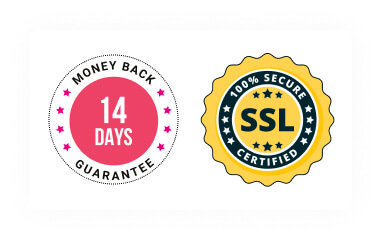
No reviews found for this course.
0
0
Your Cart
Your cart is emptyBrowse Courses
Upgrade to get UNLIMITED ACCESS to ALL COURSES for only £49/year
Claim Offer & UpgradeMembership renews after 12 months. You can cancel anytime from your account.
Other Students Also Buy








 1 Year Access
1 Year Access 
 73 Students
73 Students  360 Hours
360 Hours 

